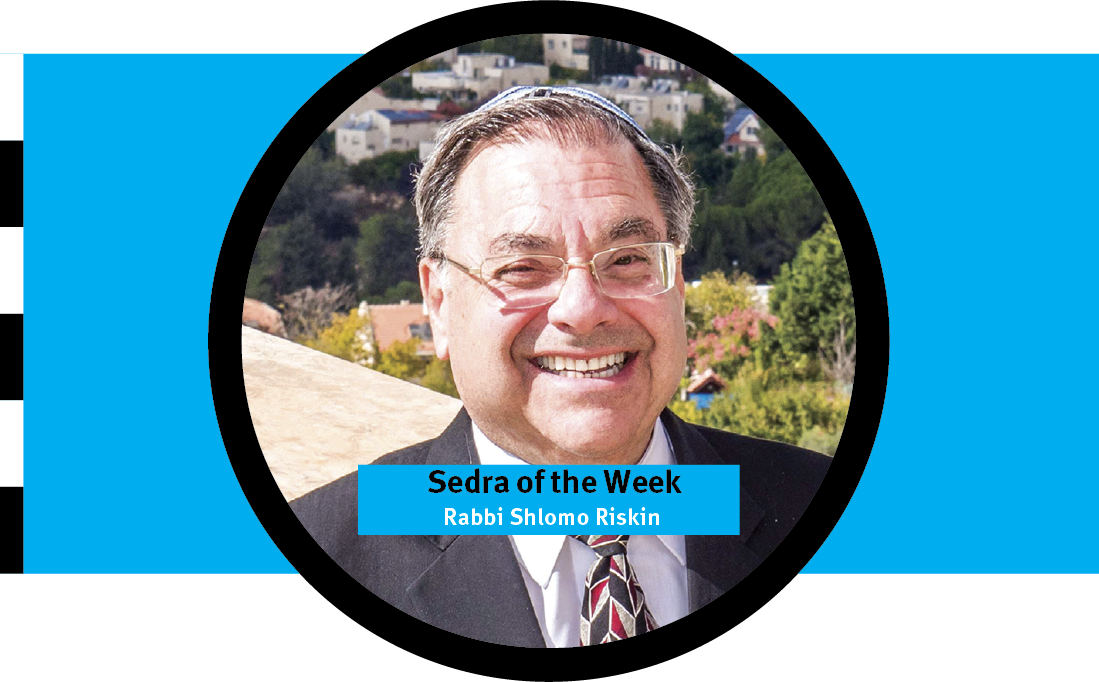Efrat, Israel – “For now I know that you are a God-fearing man, seeing that you have not withheld your only son from Me.” (Gen. 22:12)
The akeda (“binding’ of Isaac) serves as a model for one of the most important questions in contemporary family life: to what extent should a parent continue to influence, direct, or channel their adult child’s life? Can the power of a parent be taken too far? Ultimately, how much control can parents continue to have in their relationships with their adult children? The Torah offers an insight to these questions in describing the immediate aftermath of the akeda.
What happened to Isaac after the harrowing experience with his father on Mount Moriah? The Torah states, “So Abraham returned [singular form] to his young men [the Midrash teaches they were Eliezer and Ishmael, who accompanied them, but did not go to the actual place of the appointed sacrifice] and they [Abraham and the young men] rose up and went together to Be’er Sheva and Abraham dwelt in Be’er Sheva” [Gen. 22:19].
Where was Isaac? Didn’t Isaac also descend from the altar and return to Be’er Sheva?
Yonatan Ben Uziel, in his interpretive Aramaic translation, writes that Isaac is not included as having returned home to Be’er Sheva because he went instead to the yeshiva of Shem and Ever. In other words, prior to the akeda, father and son magnificently joined together — “and they walked, the two of them, together” (Gen. 22:6) — but afterwards, they had to part ways.
Abraham returns to his household, while Isaac returns to his books, to an academy of solitude and study. In the vocabulary of Rabbi Joseph B. Soloveitchik z”l, Abraham is the outer-directed, extroverted, aggressive Adam I, while Isaac is the more inner-directed, introverted, introspective Adam II.
In the conceptual scheme of the mystical Zohar, Abraham is the outgoing, overflowing symbol of hesed (loving kindness), while Isaac is the disciplined and courageous symbol of gevura (inner fortitude). The akeda is both the point of unity as well as the point of departure between father and son. Isaac enters the akeda as Abraham’s son; he emerges from the akeda as Jacob’s father (Jacob will also study at the yeshiva of Shem and Ever).
Isaac’s commitment to God is equal to that of his father, but his path is very different. Simultaneously, the akeda is the point of unity and separation, between father and son, for each must respect both the similarities as well as the differences within the parent-child relationship.
The commandment to circumcise one’s son is most certainly modeled on the symbol of the akeda. After all, the basic law prescribes that it is the father who must remove his son’s foreskin (even though most fathers feel more comfortable appointing the more-experienced mohel as their agent).
From a symbolic perspective, it is the parent’s responsibility to transmit to the children the boundaries of what is permissible and what is not. Nevertheless, despite the fact that every child is a product of the nature and nurture provided by his/her parents — and the Torah teaches that a child must respect and even revere his/her parents — the existential decisions of how to live one’s life, which profession to enter and which spouse to marry are decisions which can only be made by the adult child himself/herself. [See Shulhan Arukh, Yoreh Deah, Chap. 240:25, Laws of Respecting Parents, the last comment of Rema, citing Maharik.]
We see the importance of parental restraint in the continuation of Gen. 22:12: “For now I know that you are a God-fearing man, seeing that you have not withheld [hasakhta] your only son from Me.”
However, we can also understand the verse to mean, “For now I know that you are a God-fearing man, seeing that you have not done away with [the Hebrew h-s-kh can also mean to remove, or cause to be absent] your only son because of [My command].”
In the first reading, the angel praises Abraham for his willingness to sacrifice Isaac; in the alternative reading, Abraham is praised for his willingness not to sacrifice Isaac. [See Ish Shalom, ‘Akeda,’ Akdamot, August 1996.]
The critical lesson of the akeda, then, is not how close Abraham came to sacrificing his own son, but rather, the limits of paternal power.
Paradoxically, when a parent enables a child to psychologically separate, the child will ultimately move forward. Isaac returns from the yeshiva to continue his father’s monotheistic beliefs and Israel-centered life. Our paramount parental responsibility is to allow our children to fulfill their own potential, and our challenge is to learn to respect their individual choices.
Shabbat Shalom
Rabbi Shlomo Riskin
Founder & Rosh Yeshiva,
Ohr Torah Stone
Founding Rabbi of Efrat


